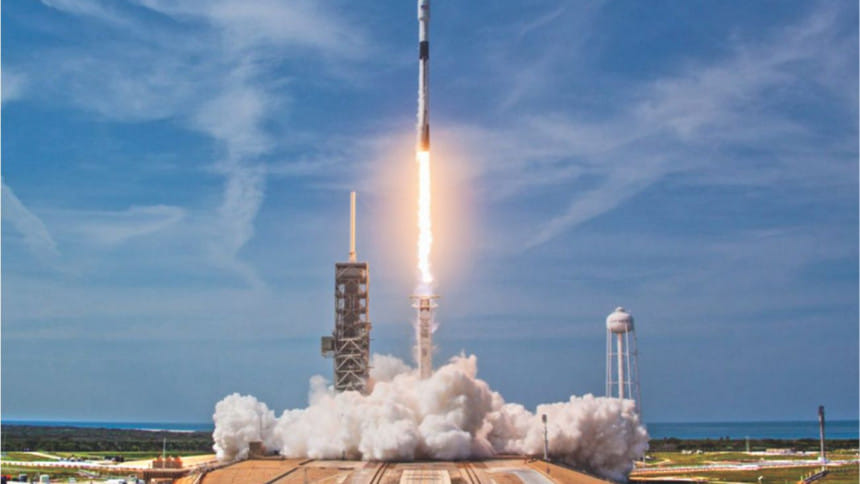3, 2, 1: Bangladesh is Taking Off

Bangladesh has achieved many milestones since its independence in 1971. The latest is its entrance to the space age. A Bangladeshi communications satellite was launched into orbit on May 11 from the Kennedy Space Center in Florida. Bangabandhu-1 is named after Bangladesh's founding father, Bangabandhu Sheikh Mujibur Rahman.
Prime Minister Sheikh Hasina, his daughter, said that joining the world's satellite club will “bring revolutionary changes in our broadcast and telecommunications sector,” including extending broadband internet service for the first time to more than 750 rural communities.
Building “Digital” Bangladesh
The geostationary satellite orbiting 35,000 kilometers above the Earth will improve telecommunications services across the country. Bangladesh also may generate revenue by renting out excess capacity to Indonesia, the Philippines and other neighbors.
“We've relentlessly been working to build digital Bangladesh since 2009,” said the prime minister.
The launch reflects an international public-private partnership. A French company built the satellite, and SpaceX, the space transportation company founded by American entrepreneur Elon Musk, provided the Falcon 9 rocket that lifted Bangabandhu-1 into high orbit.
The first stage of the launch vehicle returned to land upright and intact on a SpaceX drone ship in the Atlantic. The reusable launcher is designed to make 10 return trips with minimal repair.
The U.S. Embassy in Dhaka and the U.S. Department of Commerce were instrumental in connecting Bangladesh and SpaceX.
The satellite will allow people in rural Bangladesh to connect with their families in cities, enable remote schools to access advanced learning materials, and help software engineers “tap into work opportunities at home and abroad,” said Tom Vajda, a State Department official who attended the launch.
The government of Bangladesh has launched an initiative to help develop 2 million young information-and-communications technology professionals by 2021.
The satellite expands coverage over Bangladesh and its territorial waters in the Bay of Bengal, and can reach India, Nepal, Bhutan, Sri Lanka, the Philippines, Indonesia and parts of Central Asia.

 For all latest news, follow The Daily Star's Google News channel.
For all latest news, follow The Daily Star's Google News channel. 



Comments